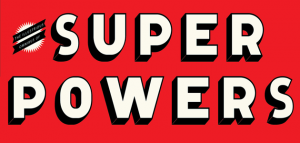A professional writer paid to create content that will be used as someone else’s is referred to as a ghostwriter. Many different people benefit from the services of ghostwriters working on various types of writing projects including poetry, blog posts, novels, biographies, eBooks, website content, and more. Reasons to hire a ghostwriter, and the types of projects that they create, are limited only by the imagination. Most people hire ghostwriters because they don’t have the writing expertise and/or time to get their masterpieces onto paper.
Hiring a ghostwriter for your writing needs requires more than finding someone who can skillfully craft the written word. Other factors should be considered and in place for the writing partnership to work seamlessly and successfully.
Check out these tips and considerations to find and develop a successful working relationship with a ghostwriter.
1. Contract
A contract should be in place and signed by both parties before the writing project commences. Because a ghostwriter never claims authorship for their submitted written work unless they are working as a co-author, they should be willing to sign and abide by the terms of a service agreement, including relinquishment of rights. The service agreement should cover all aspects of the writing assignment.
With a signed agreement in place, all parties are fully aware of their rights and responsibilities and in the event of a breach of the agreement, legal action can be taken.
2. Expertise and Experience
You should carefully examine the writer’s portfolio and thoroughly check their references. Their portfolio should contain examples of various types of writing styles such as articles, novels, books, etc.
Do the samples read well? Are the samples interesting? If you like what you see, then you will probably like what the ghostwriter will create for you.
3. Style and Voice
Analyze their writing style and voice. You should be comfortable with their style, and it should align well with yours.
If the samples the writer has provided do not emulate the style you are looking for, ask them for written samples demonstrating the style you desire.
4. Type of Material
The ghostwriter should be proficient in the creation of the type of material you need. For example, if your writing assignment requires an adept fiction writer, their writing samples and portfolio should demonstrate compelling examples of fiction.
If the written work is to be industry specific, the ghostwriter should be knowledgeable of the given industry, including its acronyms.
5. Deadlines and Requirements
Many ghostwriters work on more than one project at a time with more than one client. Make sure the writer understands your requirements and deadlines to ensure their work schedule will allow them to fully meet your needs and desires.
Discuss and agree upon all requirements prior to commencement of the writing process. For example, when writing a book, do you want them to email you each chapter upon its completion? What are your deadline requirements for edits and re-writes?
6. Reasonably Priced
The fee they request for the project should fall in line with what you’re willing to pay for its completion.
7. Unique Content
Is the writer you’re considering willing to create unique content and guarantee its exclusivity? A dependable and trustworthy ghostwriter will never create plagiarized material.
8. Personality / Working Relationship
Choose a ghostwriter that is affable as well as professional. This becomes especially critical for lengthy projects or those requiring a lot of interaction. If possible, meet with them face-to-face before starting your writing project. You will be spending a lot of time with the writer; therefore, you should expect to develop a certain rapport with them. The writing process will be much easier with someone you feel comfortable with.
Face-to-face time is even more critical when they are crafting your story—so they can get a sense of who you really are.
When checking their references, be sure ask past clients about their working relationship with the ghostwriter. Ask if there were any problems that needed to be addressed and how these problems were resolved.
9. Publishing Requirements
Do you need a ghostwriter who can assist you in the publishing process? Do you need someone who has connections in the publishing industry? Will they be responsible for helping you to self-publish or e-publish your material or book? Knowing the answers to these questions will enable you to find a ghostwriter who can meet your publishing requirements as well as your writing needs.
Hiring a ghostwriter is an important decision. By following these tips and considerations, you will find a competent ghostwriter for the length and depth of your writing project—one that can create writing that is vibrant and alive.







